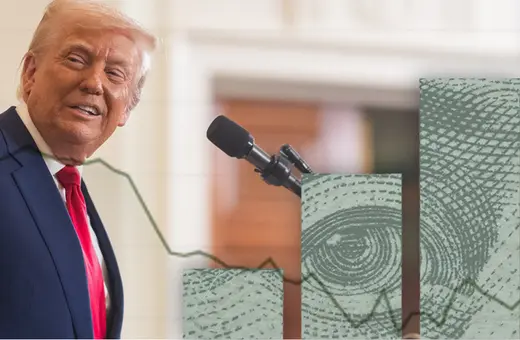With the recent announcement of Liz Truss as Britain’s new prime minister, many still wonder what inspires her politics. The answer, argues Dr Simon Lee, lies in a new kind of ideology - ‘Do-It-For-Myself Economics’, a confection of politically expedient, headline-grabbing soundbites designed to appeal to the prejudices of Conservative Party members and advance her own personal career ambitions.
In his 1985 BBC Reith Lectures, the economist David Henderson developed the thesis of 'Do-It-Yourself Economics'. This thesis argued that, over wide areas of policy, including economic policy, the judgement of politicians and their officials was guided to a large degree by 'Economics of Everyman', i.e. ‘the intuitive ideas of lay people, rather than the more elaborate systems of thought which occupy the minds of trained economists’.
What the hustings of the Conservative Party leadership contest has revealed about Liz Truss is that her thinking on economic policy has been shaped, not so much by Henderson’s ‘Do-It-Yourself Economics’, but rather by her own ‘Do-It-For-Myself Economics’: a confection of British nationalism, politically expedient, headline-grabbing soundbites designed to appeal to the particular prejudices of Conservative Party members and thereby advance her own personal career ambitions to succeed Boris Johnson as Prime Minister.
In relation to Truss’ ‘back-to-basics’ crime and policing strategy, one Chief Constable has described Truss’s soundbites as ‘attractive headlines’ which are ‘meaningless without further explanation’. The same can be said for Truss’s political economy which only makes sense when placed in historical context.
Truss has claimed to possess ‘a bold new economic plan’, offering ‘a vision of a low-tax economy with sound economic stewardship, that puts personal freedom and responsibility at the heart of everything we do, and is on the side of hardworking people’.
___
‘Do-It-For-Myself Economics’: a confection of British nationalism, politically expedient, headline-grabbing soundbites designed to appeal to the particular prejudices of Conservative Party members and thereby advance her own personal career ambitions to succeed Boris Johnson as Prime Minister
___
This vision is to be delivered via tax cuts, by ‘reversing the National Insurance rise and stopping the planned corporation tax hike’, and unlocking ‘the huge opportunities of Brexit with bold reforms to grow our economy’. Truss has also promised to challenge the Treasury and ‘to take on that orthodoxy, sometimes the risk aversion, to be able to get things done’.
 SUGGESTED READING
Inflation is more dangerous than recession
By Eamonn Butler
SUGGESTED READING
Inflation is more dangerous than recession
By Eamonn Butler
Truss has claimed that this plan ‘is in line with our true blue Tory values: low taxes, deregulation and bold supply-side reforms’. But her offer of ‘full-fat freeports and new investment zones’ is simply not aligned with the traditional core tenets of British conservatism.
Such an ideology proposes a limited role for the state to protect private property rather than free market capitalism. It also seeks to conserve an organic society and orderly change rather than a permanent revolution of market-led transformation.
Truss’s statements during her leadership campaign have instead aligned her with the core tenets of the orthodox ‘developmental market’ model of liberal political economy. Namely ‘entrepreneur-led innovation, competition, profit, liberalization, deregulation and privatization’, which has dominated the Conservative Party’s economic thinking for the past 43 years.




















Join the conversation